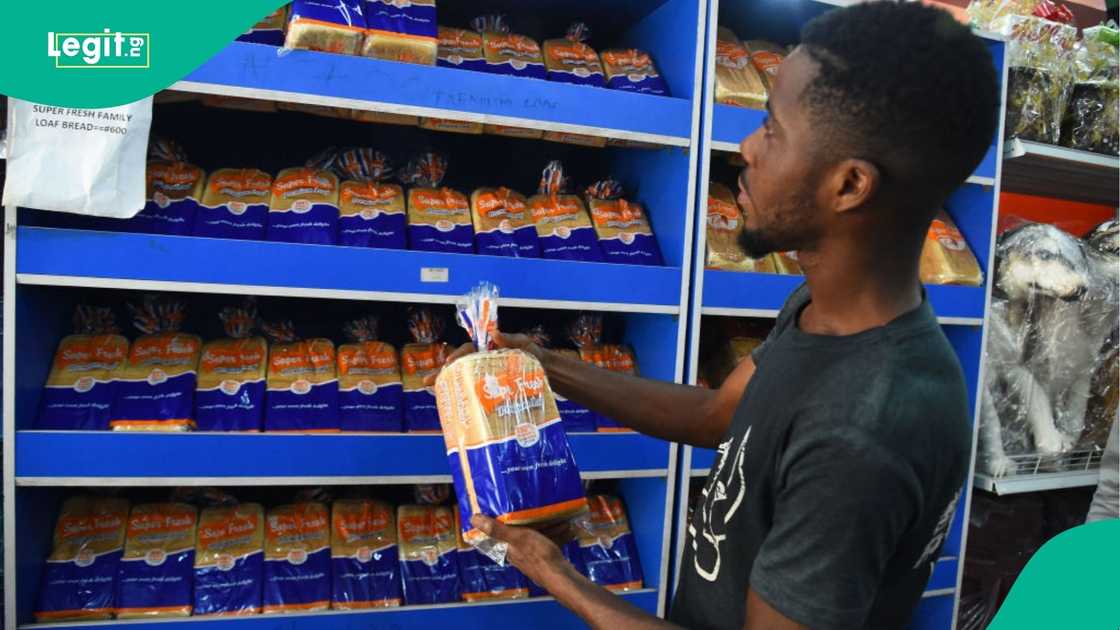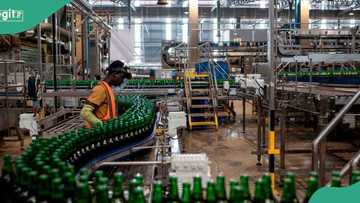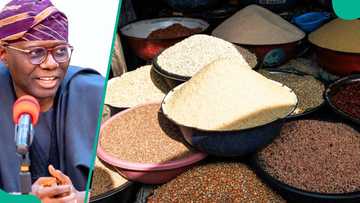Nigeria’s Baking Industry in Crisis as Over 80,000 Bakeries Shut Down in 4 Years
- Bread makers have said the baking industry is in a series of crises, leading to the shutdown of over 80,000 bakeries in four years
- The president of the association said bakers are faced with high interest rates, high cost of production, and high energy costs
- These are problems that affect the manufacturing sector in general, as well as small and medium businesses
The Premium Breadmakers Association of Nigeria (PBAN) has said the baking industry is in a series of crises, leading to the shutdown of over 60,000 bakeries since 2024.
According to Daily Trust, the association's president, Engr. Onuorah Emmanuel said the economic climate in the last five years has crippled the baking industry.
He made the claim while speaking at the association’s PBAN Day Out 2025, themed “The Business of Baking: Pathways to Profit, Productivity and Growth,” held in Lagos.

Source: Getty Images
Emmanuel disclosed that over 140,000 bakeries were operating before 2020, but more than 80,000 have shut down, while less than 60,000 are still operating.
He blamed the large shutdown on such economic problems as high production costs, insecurity, and high interest rates.
The high cost of production often stems from multiple taxation, a situation that manufacturers across sectors have complained about.
Emmanuel criticised the government for its obsession with taxation, despite the economic hardship faced by many people and industries.
He argued that taxation doesn’t grow the economy, hence the government needs to create wealth if it wants to raise revenue from taxes.
He also complained about high interest rates:
“The finances are stifling us; interest rates are astronomical. You can’t go to the bank and get a single-digit loan. All their loans are above 30 per cent.”
He argued that the whole of Nigeria’s manufacturing sector is afflicted by high production costs.
He added that the sector’s heavy dependence on the importation of raw materials also raises the cost of production.
98% of wheat imported
The PBAN president also stated that 98% of the wheat consumed in the country is imported.
He stressed that Nigeria produces only 300,000 metric tons of wheat while it consumes 5.1 million metric tons annually.
He said if Nigeria were producing more wheat, it would reflect positively on the economy and create jobs for the youth.
Emmanuel hailed President Bola Tinubu for lifting the 15% import duty and the Value Added Tax (VAT) on wheat and grains, claiming that the taxes were lifted after serious advocacy from PBAN and other stakeholders.
He said the removal of import duty and VAT has helped to stabilise the prices of bread in the country and reduce constant layoffs of staff in order to remain in business.
He added:
“Before the taxes were removed, we were changing prices almost four times in a month in order to stay afloat.”

Source: Getty Images
Emmanuel also explained how Nigeria’s energy crisis is stifling productivity in the baking sector.
He said that even though many members are paying a premium under band A, they are given low voltage, hence they have to rely on alternative energy sources such as diesel.
Emmanuel also lamented over the high level of insecurity in the northern region, which is Nigeria’s food basket.
He said insurgency and banditry in the region have crippled local wheat farming and production efforts.
He said:
“Farmers pay tolls to bandits or terrorists, or else they can’t go to their farms. How can we talk about backward integration when people risk their lives just to plant?”
"The government must fix security because if you fix security, you fix everything.”
SMEs lament high interest rates
Legit.ng had earlier reported that small, medium and micro business owners are complaining about Nigeria’s high interest rates.
The National Association of Small and Medium Enterprises (NASME) said the high interest rate, coupled with low purchasing power in the country, is killing SMEs.
The current Monetary Policy Rate (MPR) in Nigeria, through the government, has pledged economic reforms that would bring the interest rate back to a single unit.
Source: Legit.ng




